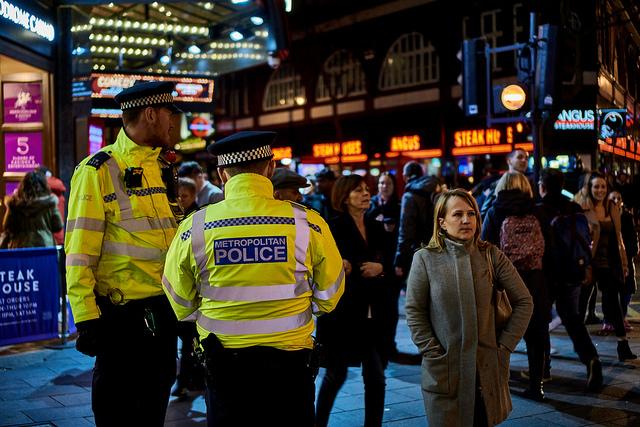Reader response: in the face of terror, let’s invest in resilience
Posted By Anthony Bergin on July 10, 2017 @ 11:00

John Coyne provides an interesting perspective [1] on what he sees as the problem of our political leaders focusing on quick-fix, get-tough security measures (such as installing bollards and calling for a 24/7 AFP tactical response at airports, tougher bail laws and heavier-armed police), rather than long-term strategies for addressing complex security problems.
John is right that ‘people expect and value steadfast resolve when it comes to terrorism’ and that after recent terror attacks here and abroad ‘it’s understandable that our leaders want to appear tough on security’.
I’d add that in a paradoxical way the public’s expectations are higher today because of the security improvements we’ve made in recent years. The recent Lowy Institute annual poll [2] has some interesting findings on this. Feelings of safety remain at their lowest point in the 13-year history of Lowy’s polling. While most Australians (79%) say they feel ‘safe’ overall, only 20% (down four points since 2015) feel ‘very safe’, and 21% feel unsafe overall. Terrorism was the main factor here—68% of Australians saw it as a ‘critical threat’.
National security spending continues to grow as the community has accepted that we need long-term investment in critical policing and intelligence capabilities to counter future terrorism threats. But because of these investments, ironically any security lapses have become more unacceptable to the public.
So, it’s not surprising that people expect state and federal governments to reach the highest standards of security they can. Even though our political leaders know they can’t deliver perfection, they often inflate community expectations by acting as if vulnerability to terrorism can be eliminated completely. Thus even minor security failures loom much larger to the public than plots foiled. (And with saturation media coverage of recent terror events in Manchester, London and the Melbourne suburb of Brighton, people find it difficult to judge the actual risk of a terror attack occurring.)
I’d add one further comment on John’s article. He says that federal and state government leaders should focus their domestic security thinking on ‘how their decisions will support the detection, disruption and/or mitigation of risks’. I agree with that, but I think that we need to be careful not to put all our eggs in the detection-and-disruption basket.
An equal emphasis in my view should be placed on planning to respond and recover. The kind of response we saw from Londoners in the recent attacks—not just ‘keeping calm and carrying on’ but also the help they offered to first responders—provides some measure of deterrence to would-be terrorists who want us to panic and overreact. In other words, the way that London has been preparing for these kinds of emergencies has helped to strengthen the communities and make them less surprised when attacks do occur. (It’s worth a look at this BBC story [3] on how British people reacted on social media to a New York Times story that stated that the UK was ‘reeling’ from the recent London attacks.)
Put bluntly, we need to prepare much more for national security emergencies, and that will affect perceptions of public safety: communities will be able to exercise more control over how they react to terrorism. That applies especially when it comes to healthcare preparedness for mass casualty terrorism [4].
When terror attacks occur, we need to minimise the loss of life and speed recovery. That’s something that London’s Metropolitan Police did superbly when they intercepted and killed the three attackers within eight minutes of receiving the first call. We can also learn from Israel, whose highly resilient population has been tested by many disruptive events. Its communities have very high capacities to continue operations and daily life during crises. There’s a high rate of preparedness based on known doctrine and many exercises, continuous systems and programs to mitigate the effects of the disruption. There’s effective dissemination of relevant information to communities and trust in local leadership. As a country that’s endured decades of conflict and terror, yet still managed to build a flourishing economy and vibrant democracy, Israel offers insights into individual and societal resilience in the face of terror.
The more empowered people feel the less afraid they’ll become: investing in enhanced community resilience isn’t admitting defeat or neglecting efforts to prevent terrorism. It’s about minimising the costs of terrorism. When it comes to counterterrorism, our political leaders need to regularly articulate the value of and benefits from investment in resilience.
Article printed from The Strategist: https://aspistrategist.ru
URL to article: /reader-response-face-terror-lets-invest-resilience/
URLs in this post:
[1] an interesting perspective: /counterterrorism-acting-without-thinking/
[2] recent Lowy Institute annual poll: https://www.lowyinstitute.org/publications/2017-lowy-institute-poll
[3] BBC story: http://www.bbc.co.uk/newsbeat/article/40156559/thingsthatleavebritainreeling-trends-after-london-attack-in-response-to-headline
[4] healthcare preparedness for mass casualty terrorism: https://www.policyforum.net/are-we-ready/
Click here to print.